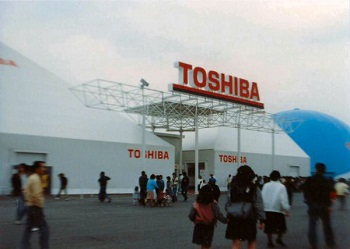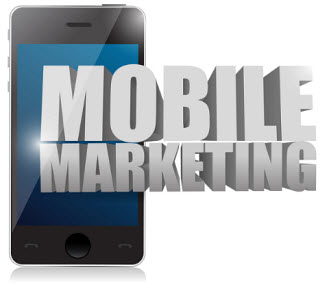The brand has decided not to use the over-the lens prism that was selected for Google Glass.
The latest brand to have their eye – so to speak – on the smart glasses market appears to be Toshiba, which has just finished revealing their prototype in Japan at the Ceatec trade show.
While these wearables may not be ready to bump Google Glass out of the running, price may be in their favor.
So far, it looks as though the smart glasses that could be offered by Toshiba would be a bit more affordable than Google Glass, which comes with a hefty price tag, at the moment. They are currently calling this wearable technology device Toshiba Glass. While they do include a built-in projector, they are unlike the current front runner in this category in that the image that they display is simply reflected off the inside of the lens in order to provide the wearer with a kind of augmented reality display experience.
This makes the idea similar to Google’s smart glasses, but at the same time, they are rather different.
 The Toshiba wearables feature a lightweight, small projector that is clipped onto one of the arms of the eyewear, close to the lens. It is that projector that reflects the image off the lens for the viewer to see in augmented reality. Google’s option also uses a projector, but its design is different in that it uses a prism over the lens in order to reflect the projected image to be seen by the wearer’s eye.
The Toshiba wearables feature a lightweight, small projector that is clipped onto one of the arms of the eyewear, close to the lens. It is that projector that reflects the image off the lens for the viewer to see in augmented reality. Google’s option also uses a projector, but its design is different in that it uses a prism over the lens in order to reflect the projected image to be seen by the wearer’s eye.
The product from Toshiba skips the use of the prism and has constructed the lens, itself, to be made up of a series of slim vertical prisms that are essentially invisible while looking directly through the lens as you would as you went about your daily routines. However, it allows an image to be projected upon them from an angle so that the wearer will be able to see it.
The specs from the company state that the device, as a whole, weighs about the same as Google Glass, at 42 grams. That said, they aren’t quite up to that level, particularly in that they are not wireless, as a battery in the projector would make the weight too high.
The restaurant chain started on pen and paper, and brought the game online last year, now it’s moving up again.
After having taken its popular game, Beat the Leader, online in 2013 after it had previously been available only on pen and paper, Old Chicago is now going the mobile marketing route and is opening up the challenge to people with smartphones and tablets, as well.
So far, more than half of all of the Beat the Leader traffic has come from smartphone and tablet using customers.
That said, beyond the game, itself, Old Chicago has seen quite a dramatic shift, overall in the participation of their over ninety restaurants since mobile availability came into play. This just one more example of the importance of mobile marketing and compatibility when it comes to succeeding in today’s marketplace. More than 6 out of every ten participants, this year are now coming from mobile devices.
This helps to illustrate the trend toward mobile marketing and the effect it is having on consumers.
 Among the additional appeals for playing the popular game over mobile, this channel also provides customers with a far greater way in which to engage with and challenge other players who can be found all across the United States. As an added incentive, there are some great digital rewards available to players.
Among the additional appeals for playing the popular game over mobile, this channel also provides customers with a far greater way in which to engage with and challenge other players who can be found all across the United States. As an added incentive, there are some great digital rewards available to players.
This new digital game was the result of a partnership between Old Chicago and Movement Strategy. This effort is proving to be a considerable success. According to the Movement Strategy co-founder, Eric Dieter, “With the improvements to the mobile experience we’re aiming for a 90 percent retention rate week over week – meaning users are returning to make picks and view leaderboards.” Comparatively, last year, that figure had been only 70 percent.
Mobile marketing has started to play a very important role in the restaurant world, from large fast food chains to single location mom and pop eateries. It has become a way to reach and engage consumers and to encourage them to stop in more often than they usually would, or to order more than they had planned, while enjoying every moment of the experience.
 The Toshiba wearables feature a lightweight, small projector that is clipped onto one of the arms of the eyewear, close to the lens. It is that projector that reflects the image off the lens for the viewer to see in augmented reality. Google’s option also uses a projector, but its design is different in that it uses a prism over the lens in order to reflect the projected image to be seen by the wearer’s eye.
The Toshiba wearables feature a lightweight, small projector that is clipped onto one of the arms of the eyewear, close to the lens. It is that projector that reflects the image off the lens for the viewer to see in augmented reality. Google’s option also uses a projector, but its design is different in that it uses a prism over the lens in order to reflect the projected image to be seen by the wearer’s eye.
 Among the additional appeals for playing the popular game over mobile, this channel also provides customers with a far greater way in which to engage with and challenge other players who can be found all across the United States. As an added incentive, there are some great digital rewards available to players.
Among the additional appeals for playing the popular game over mobile, this channel also provides customers with a far greater way in which to engage with and challenge other players who can be found all across the United States. As an added incentive, there are some great digital rewards available to players.